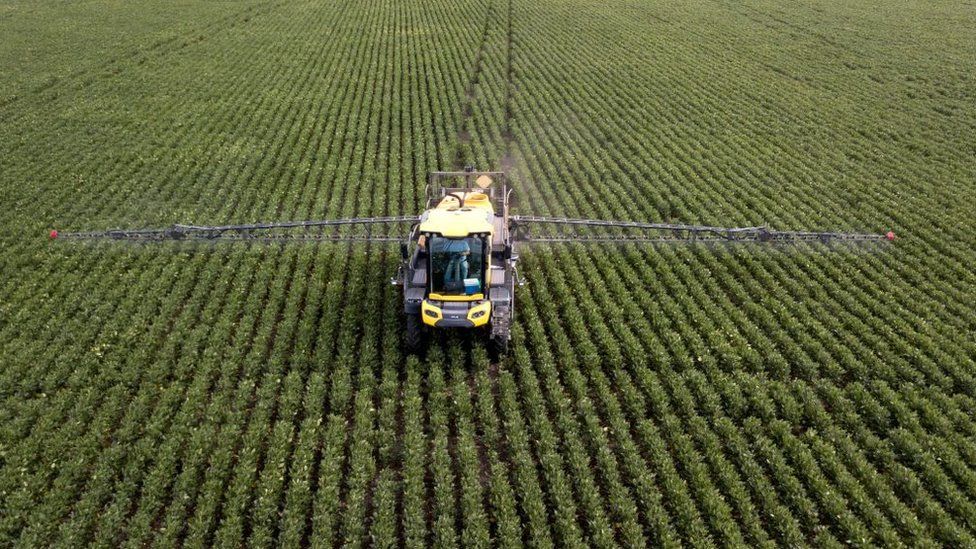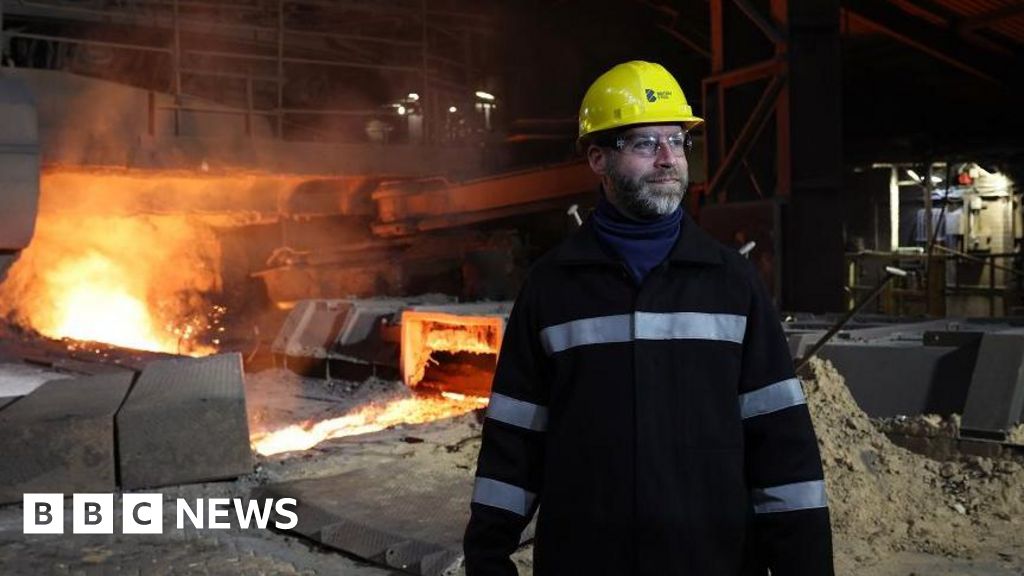ARTICLE AD BOX
 Image source, Getty Images
Image source, Getty Images
Scotland should not have food products "forced" on it because of the easing of regulations around gene editing, a government minister has said.
The UK government has introduced a Genetic Technology (Precision Breeding) Bill which would set different rules from the EU following Brexit.
But the idea has been dismissed by environment secretary Mairi McAllan.
She has written to UK environment secretary George Eustice and Scottish Secretary Alister Jack, saying Scotland would not make the same changes as England if the bill passed.
Ms McAllan said the Scottish government "will not accept any constraint on the exercise of its devolved powers to set standards within devolved policy areas".
Gene editing allows scientists to change a plant or animal's DNA.
Scientists can engineer crops that are more disease or drought resistant, without adding genetic material from another species.
Under the UK's internal market act, anything approved for sale in one part of the UK must be available across the whole of the UK.
Tomatoes developed by scientists in Norwich to produce high amounts of vitamin D could be among the first gene-edited produce to go on sale.
However, Scotland and Wales could potentially use their powers to restrict the use of genetically edited produce.
In her letter, Ms McAllan said: "If the UK government is determined to press ahead with this legislation, it must take steps to ensure that its revisions to the definition of a GMO (genetically modified organism) do not force products on Scotland which do not meet standards here without the consent of the Scottish Parliament."
Gene-edited tomatoes that boost vitamin D are among the foods that could be commercially developed
She also raised concerns about the impact of the bill on Scotland's food exports to the EU.
"As your impact assessment for the Genetic Technologies (Precision Breeding) Bill acknowledges, removing gene-edited products from England's GM regulatory regime would mean divergence from the EU approach and as such could have implications for compliance costs and future trade," she wrote.
"The impact assessment also raises the prospect that new trade barriers could come in the form of checks and certification requirements on UK food exports entering the EU's single market.
"It states that this would not only affect products exported to the EU which contain precision-bred plant material, but also those in the same product categories which do not."
In turning down the UK government's offer to include Scotland in its gene editing scheme, the Scottish government is not saying "never".
Its preference is to wait for an EU-wide review of the technology, rather than to press ahead, with England, using the policy-making freedom that Brexit allows.
That is partly political - SNP ministers opposed Brexit and want to stay closely aligned to EU rules in the hope Scotland can one day rejoin the union as an independent country.
There's also a more practical consideration - that divergence could lead to new trade barriers with the European single market if it wants to keep gene-edited produce out.
The constitutional flashpoint is the operation of UK single market rules that mean any gene-edited produce approved in England must automatically be allowed into the Scottish market.
Holyrood ministers hate how that could cut across their powers to regulate what's suitable for sale and are seeking an exemption, without saying what action they might take if they don't get one.
Gene editing is supported by the National Farmers Union (NFU) in Scotland but Scottish ministers have consistently railed against it, aiming to keep as close as it can to EU regulations.
However, the EU has recently launched a consultation on bringing forward similar legislation for plants, food and feed produced from new genomic technologies.
UK cabinet minister George Eustice previously wrote to First Minister Nicola Sturgeon, saying the new bill provided "the opportunity to make the UK the best place in the world to invest in Agritech innovation".
He said: "Outside the EU we are free to follow the science.
"These precision technologies allow us to speed up the breeding of plants that have natural resistance to diseases and better use of soil nutrients so we can have higher yields with fewer pesticides and fertilisers.
"The UK has some incredible academic centres of excellence and they are poised to lead the way."

 3 years ago
102
3 years ago
102








 English (US) ·
English (US) ·